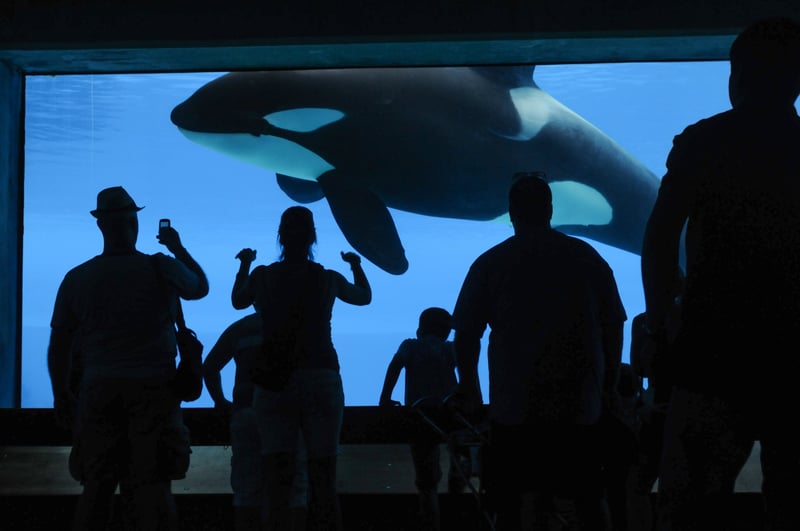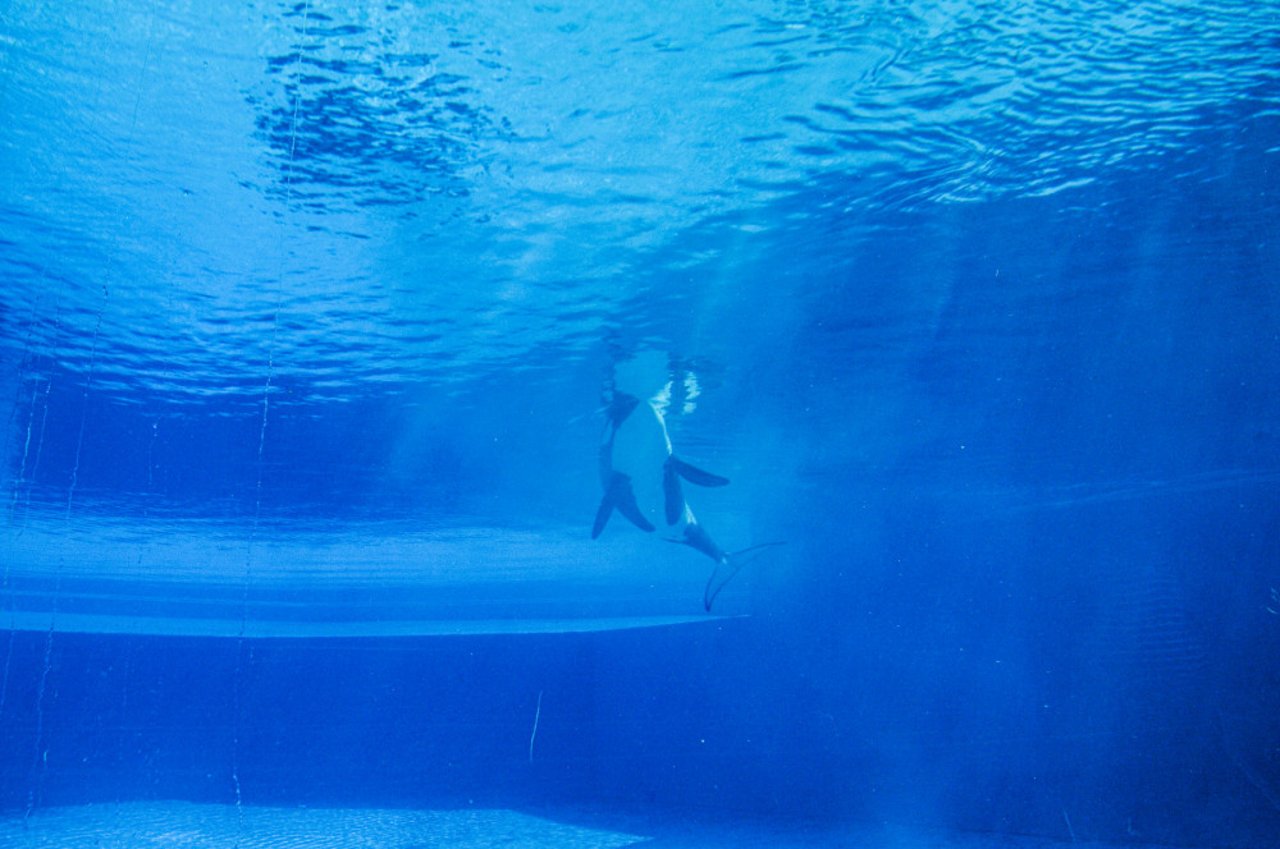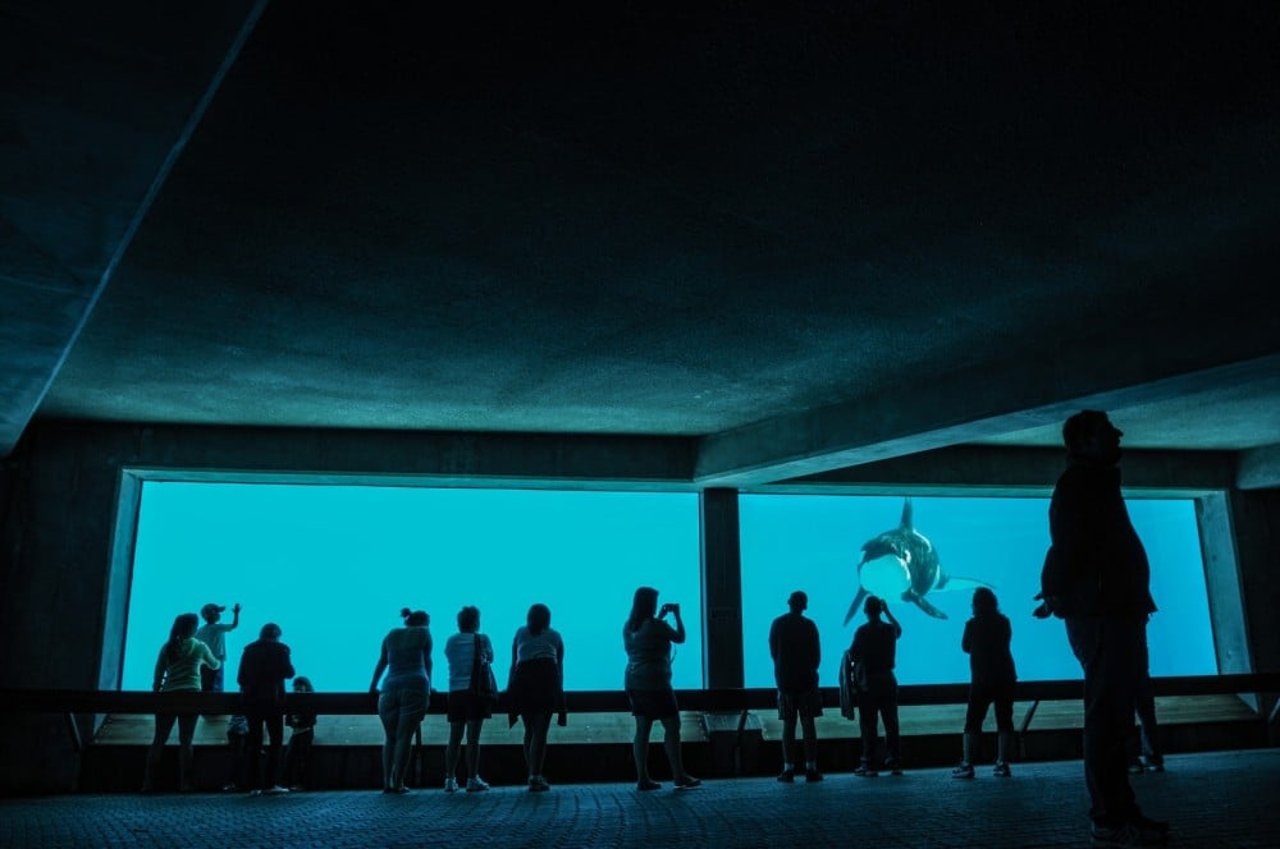
Tragically, Kiska died in March 2023 from a bacterial infection. She was the last captive orca in Canada. This is her story.
Up until her death, Kiska, a 46-year-old orca who lived in MarineLand, a marine amusement park in Niagara Falls, Canada, was known as the “loneliest whale in the world.” She received global attention after a video of her banging her head against her tank went viral in 2021, renewing public outcry and calls for Kiska’s release.
Initially captured off the coast of Iceland in 1979 at approximately three years old, she was eventually transferred to MarineLand (along with another famous captive orca, Keiko).
For decades there had been concerns for Kiska’s well-being. This was amplified in 2011 in a custody battle between SeaWorld and MarineLand over another orca named Ikaika. In the early 2000s, MarineLand had been looking for a male partner for Kiska and reached out to SeaWorld. SeaWorld agreed to give Ikaika, then four years old, to MarineLand in exchange for three beluga whales. Ikaika was flown to Canada to live with Kiska and another female orca, Nootka.
Credit: Jo-Anne McArthur / We Animals Media
SeaWorld vs. MarineLand: The Legal Battle Over Ikaika
Sadly, Ikaika had already begun developing several behavior and health issues common for orcas in captivity. He became aggressive, attacking and biting Kiska, and had dental issues that required daily antibiotics and pain medication. As Ikaika’s condition and behavior worsened, SeaWorld requested his return in 2009, claiming it could take better care of Ikaika. MarineLand disagreed, and the dispute went to court. In 2011, SeaWorld won the case, and Ikaika was flown back to California.
During this time, Nootka had tragically passed away, leaving Kiska to be dubbed by concerned citizens as “the loneliest whale in the world.” Throughout her life in captivity, Kiska gave birth to five calves who all sadly died at young ages. She was often seen displaying stereotypes--abnormal and repetitive behaviors that can result from boredom, stress, and lack of stimulation in captivity. In addition to banging her head against her tank, Kiska often swam in circles or simply floated lifelessly.
In 2019, Canada banned whales, dolphins, and porpoises from being bred or held in captivity. But those already living in captivity, like Kiska, were forced to remain. Kiska’s tragic life of loneliness and isolation showed how cruel the captive cetacean industry is. Orcas are highly social animals who suffer tremendously living in isolation and without the ability to swim great distances and depths as they would in the wild.
While Kiska was unable to be freed from captivity, there is some hope for other dolphins and whales in her position. The world’s first whale sanctuary is currently being built in Nova Scotia, Canada by the Whale Sanctuary Project (WSP). Animal activists are calling on MarineLand to release some of the venue’s belugas, to this sanctuary when it opens.
Credit: Jo-Anne McArthur / We Animals Media
At World Animal Protection, we are working to end dolphin captivity (don’t forget, killer whales are the largest dolphin species!). Dolphins belong in the wild, not in captive environments where they’re exploited, abused, and unable to live natural lives. We advocate for captive dolphins to be released to seaside sanctuaries, where they can live the rest of their lives in as natural an environment as possible. Through public education, corporate engagement, and the development of responsible alternatives, we are working towards a world where dolphins and other wild animals live free from suffering.
Want to help end the captive wildlife entertainment industry? Help us achieve this vision by signing our petition to demand the Miami Seaquarium shut down and comply with the eviction order, ensuring a better future for the animals living at the venue.

